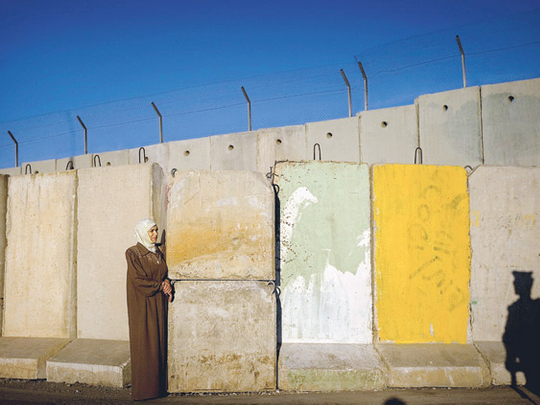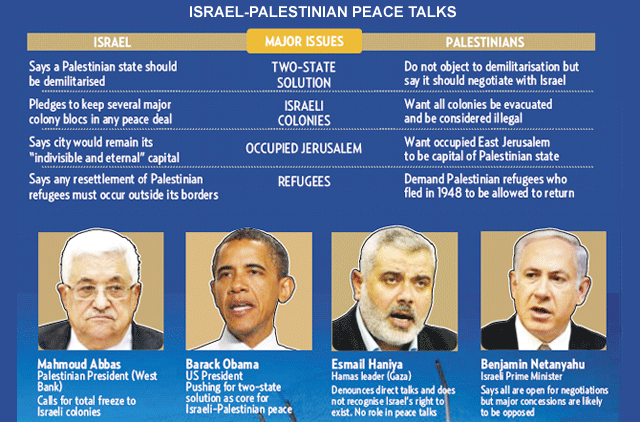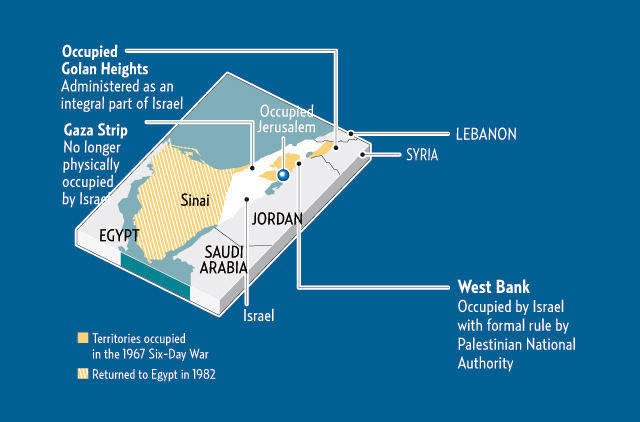
Dubai: When Palestinian and Israeli leaders meet on Thursday at the State Department in Washington, it will be under a cloud of deep pessimism.
Political experts, along with a host of officials in the Middle East, are warning against any hopes being pinned on the talks making a major breakthrough.
Palestine, at present, considering the inter-Palestinian split and international concern over Iran's nuclear programme, is in a weak position and not expecting much from the talks. And the Israelis are reportedly not willing to offer much in the discussions either.
Nader Saeed, a Palestinian socio-political expert and head of the West Bank's Arab World for Research and Development (AWRAD) told Gulf News: "The Palestinian National Authority (PNA), which is in a difficult position, is going to the talks without getting the support of the political parties, people and the civil society organisations".
Saeed said the Palestinian leadership was only taking part in the direct talks because there was an absence of better options.
Palestinian leader Mahmoud Abbas indicated he was taking part in the talks because Palestine lacked "a real alternative".
Palestine also lacked the strong socio-political support which could have given it the legitimacy the country will need to have real influence in the direct talks. And military resistance was not an option, he said.
At the same time, Saeed said it was clear that the Israeli Prime Minister Benjamin Netanyahu was being pulled to the peace talks the same way his predecessor, Yitzhak Shamir, went to the Madrid peace conference in 1991: "kicking and screaming".
Netanyahu, however, was going to the talks as part of Israel's attempts to normalise relationships with Palestinians and Arabs.
Tel Aviv wanted it both ways, Saeed said.
"Israel has a real interest in reaching the highest level of occupation, with the highest level of normalisation," he said.
Thursday's re-launching of the peace talks followed an iftar to open the event, held in Washington last night. The iftar was also attended by Jordan's King Abdullah II and Egypt's President Hosni Mubarak.
A senior Jordanian official was quoted by the AFP news agency recently as saying that Jordan and Egypt, the only two Arab states to sign peace treaties with Israel, were "cautiously optimistic, because, historically, such meetings have led to no success".
Regarding Netanyahu, the Jordanian official said the Israeli leader did "not want to commit to anything but he says he is in a hurry and would like [a final solution] all in six months".
Jordan's advice to Abbas was: "Try to be positive. Don't say ‘No'. You can say ‘Yes, but'." The direct talks are being held after Palestinian leader Abbas abandoned his earlier demand that Israel first stop all colonial activities in Palestinian lands.
Netanyahu's government has imposed a 10-month moratorium on new colonies in the West Bank, but not in occupied East Jerusalem. The moratorium will expire on September 26, unless Israel renews it.
Before heading to the US, Netanyahu added to his list of demands by saying Palestine must recognise Israel as the Jewish state — a demand already rejected by the Palestinians — and make "real" security arrangements.
"I believe the basic problem is the lack of an American vision on how they really want to solve the Palestinian problem," Saeed noted.
Abbas, meanwhile, said he would hold Israel responsible if talks failed.
While some experts have not ruled out the possibility of the PNA's collapse if talks fail, Saeed had another view.
"I don't expect the PNA to collapse. I anticipate the PNA to be in the same place Israel envisioned it long ago — an autonomous entity that has no political legitimacy, but enjoys technical and technocrat abilities to offer services to the Palestinian areas," Saeed said.
Some experts have said that keeping the Palestinian-Israeli conflict fully unresolved actually worked to Israel's benefit.
The 62-year-old conflict was a justification for the West to support the Israeli military and could explain Israel's extremist and right-wing policies, experts speculated.
Saeed said that in the end, he could envisage a situation developing in which "the main issues in the conflict, including Israeli colonies and Palestinian refugees will lessen and become [just] talking points".
The findings
Below are some figures from a recent survey conducted by ARWAD.
• 65 per cent of the Palestinians in the West Bank and Gaza support direct negotiations based on a colonies freeze and international guarantees; only eight per cent said they supported unconditional direct negotiations.
• Palestinians blame American (inaction), Israeli (lack of recognition of Palestinian rights) and Palestinian (internal division) for lack of progress in the peace process.
• 62 per cent support, accept or tolerate a two-state solution.
• 88 per cent strongly believe that Palestinian refugees have the right for (return and compensation), but 64 per cent could live with a solution where refugees return to the Palestinian state in the West Bank and Gaza.
• 66 per cent are willing to accept or tolerate an equivalent swap of land as part of a broader agreement.
• Palestinians are equally split over the division of Jerusalem to East and West, based on the 1967 boarders.
• 95 per cent consider a comprehensive peace agreement, if implemented, as the end
Have your say
Do you think these talks will be effective? What kind of solutions do you think can be found? Tell us what you think at readers@gulfnews.com














